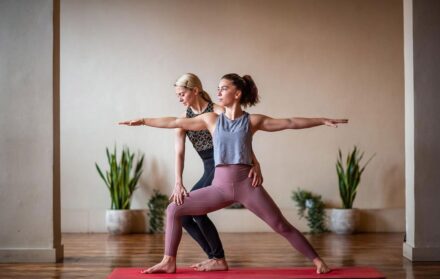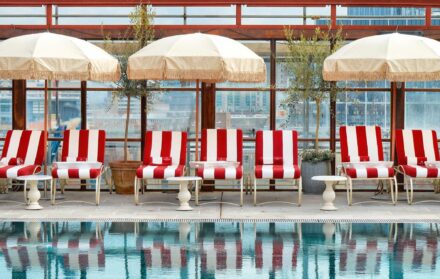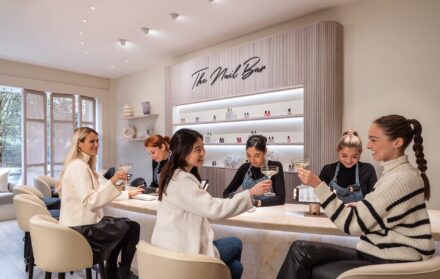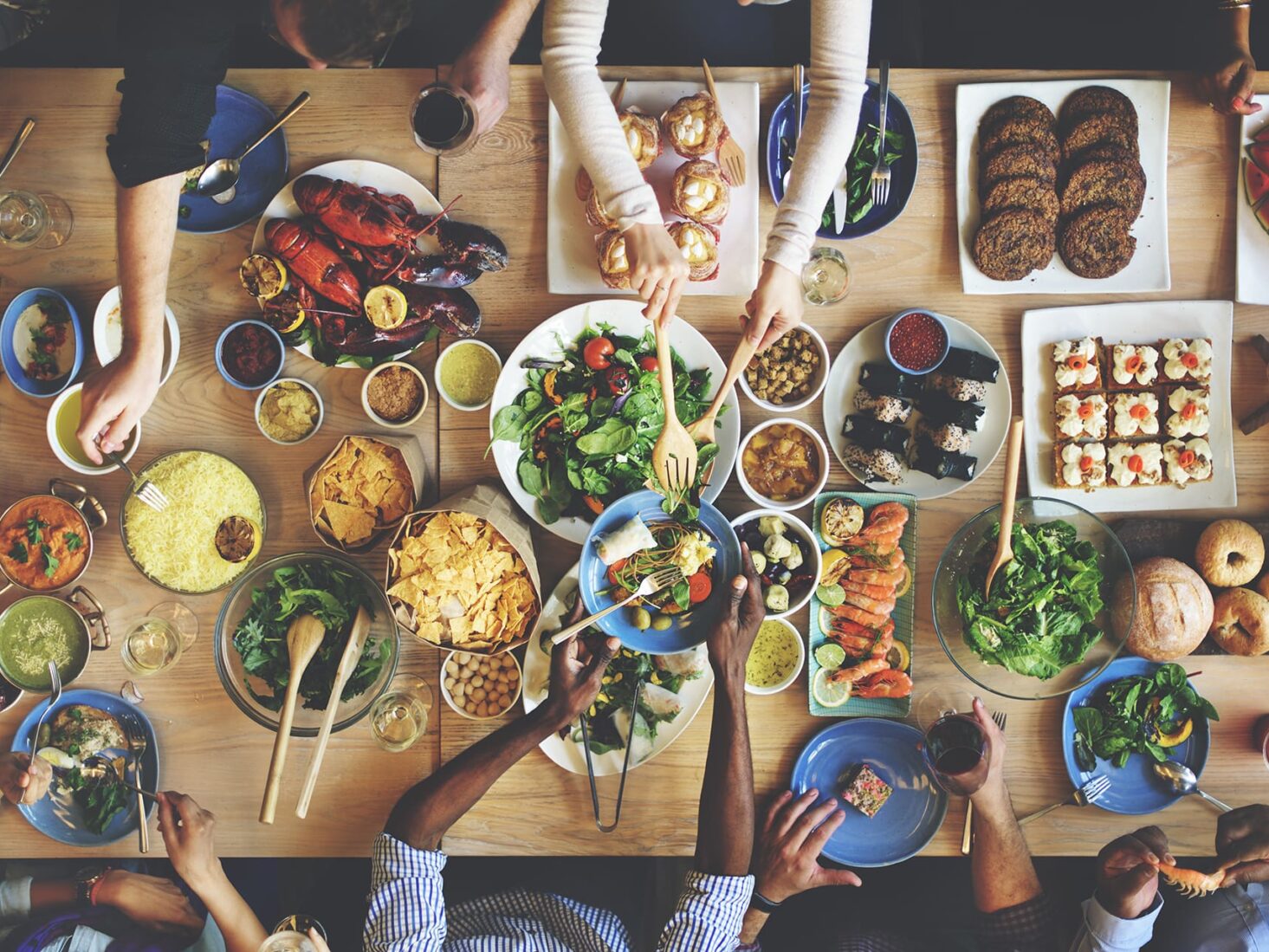
Lessons from the Blue Zones: Lifestyle hacks to help you live longer
Fancy living to 100? Here’s how small lifestyle changes can make all the difference according to longevity experts
It’s long been assumed that people in the Mediterranean live longer. The abundance of sun, fresh fruit and homegrown vegetables – and therefore much-needed vitamins and minerals – has, quite obviously, many benefits for human health. Compare this to the dreary climate, adverse weather and chemically-blasted, imported food of the UK and it’s not hard to understand why those sunning it up in the Med lead a healthier lifestyle. However, the link wasn’t scientifically proven until award-winning journalist, author and National Geographic fellow Dan Buettner chartered the globe across 20 years to discover the precise locations of the world’s longest-living populations. Enter: Blue Zones.
“Blue Zones are the five places in the world where the population not only live the longest but are the healthiest in old age, have less chronic disease, and a higher number of centenarians (people who live to 100 and beyond),” explains Leslie Kenny, founder of longevity brand Oxford Healthspan. “The Blue Zones are spread across the globe: Okinawa in Japan, Ikaria in Greece, the Nicoya Peninsula in Costa Rica, Loma Linda in California, and Sardinia in Italy.”
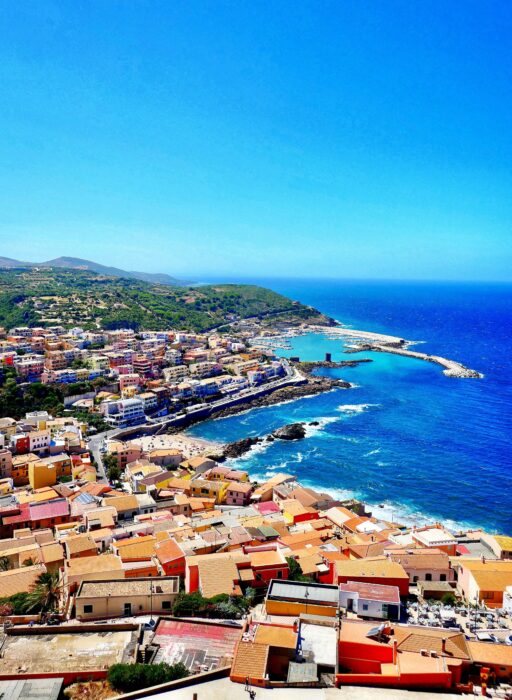
Sardinia, Italy
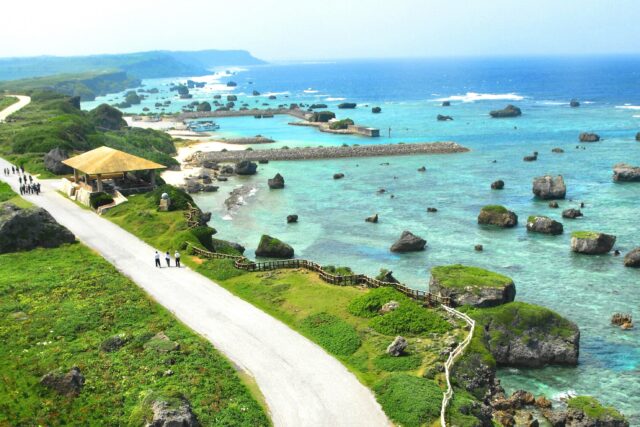
Okinawa, Japan. Image: Shutterstock
Buettner’s research – and the attention it soon received – was enough for him to write seven books and produce the 2023 Netflix docuseries, Live to 100: Secrets of the Blue Zones. The latter soon triggered a wave of social media interest into the lessons we can learn from these remote corners of the world – predominantly focusing on diet, sleep and exercise – and how we can implement them in our day-to-day lives. Spoiler alert: it’s easier than you think. Read on to discover the small changes you can make to your diet, sleep routine and exercise regime that could help you live longer.
Follow a plant-based diet
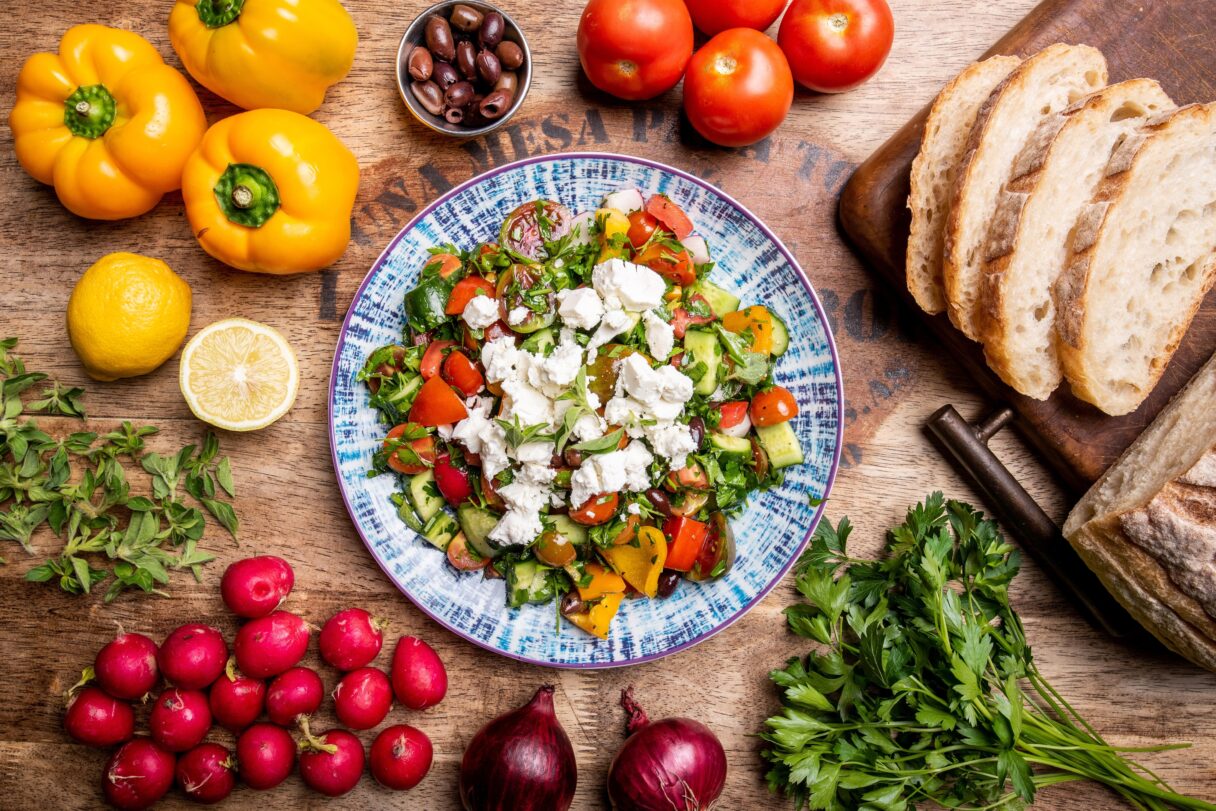
As Buettner studied the diet of those living in Blue Zones, he discovered that, although diets varied from country to country, they all had one common denominator: plant-based, whole foods. Together with Harvard-based American physician Walter Willett, they studied 154 dietary surveys collected over 80 years across all five blue zones, which revealed that 90 to 95 per cent of the diets were whole foods, such as vegetables, fruits, grains, legumes and beans, with a notable lack of meat, dairy, high-sugar or processed foods.
“While Blue Zones have diets unique to their culture with local staple foods, their diets all emphasise plant-based, nutrient-dense foods and also incorporate fermented foods, such as fermented soy (miso and natto) in Okinawa, which can improve the diversity of your gut biome,” adds Kenny.
Alcohol isn’t off-limits in Blue Zones but, Kenny stresses, it’s all about moderation and the quality of local ingredients. “Good quality local wine allows people to relax and experience more joy in life amongst friends; alcohol is in moderation as a social and cultural activity. Sardinian centenarians drink wine with local minerals for example.”
So, what other foodie tips can we take from Blue Zones? Mediterranean bitter green salads – filled with the likes of lamb’s lettuce, watercress, radish and chicory – don’t only taste great but also trigger the production of digestive enzymes in the stomach. “This then prompts the liver and pancreas to release their digestive secretions, which has a positive effect on the peristaltic (wave of muscular contraction) action of the large intestine,” explains Cullen. “Everything works better: food is broken down more effectively; your appetite is satisfied; and your body is provided with all the nutrients it needs to work effectively.
“There’s another thing about the Mediterranean diet: the usage of foods that help the beleaguered liver to cope with fatty foods. The butter and oil that they dollop into their dishes [can be] broken down effectively by lovely liver-friendly foods such as artichoke.” This can help to improve the way that the liver handles fats and reduce the production of cholesterol too.
Take time to enjoy your meals
It’s also worth noting that attitudes towards mealtimes are observed differently in some Blue Zone cultures, explains Alison Cullen, nutritional practitioner and education manager at holistic health company A.Vogel. “There is a different attitude to food on the shores of the Mediterranean. How do they eat? They sit down,; they relax,; they gather their friends and family around them and take time to relish their food.
“It makes a huge difference. French and American researchers went to fast-food joints in urban shopping districts at the same time of year at lunchtime, to record the length of time people remained seated with their food. The French spent an average of 22.2 minutes sitting and eating, while Americans stayed only 14.4 minutes. The French are noted for their slender girth, whereas the American population struggles with high levels of obesity.”
Get enough sleep
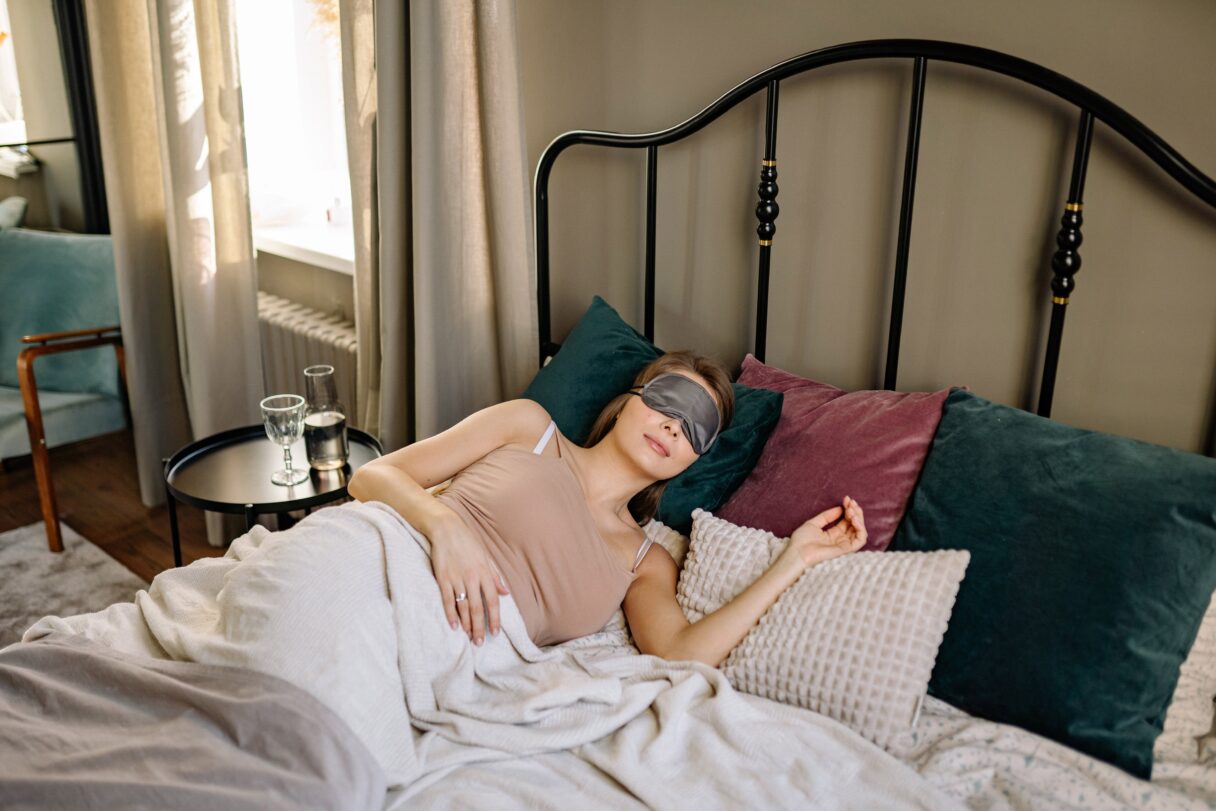
Ranting about the benefits of a good night’s sleep is nothing new, but Buettner found those living in Blue Zones often leant into their circadian rhythms more than those living in light-polluted cities. His research showed that, typically, people in Blue Zones would go to bed soon after the sun goes down and wake when the sun rises, resulting in a healthy eight-10 hours of sleep per night.
"Not getting enough sleep can cause inflammation. We need sleep to allow our bodies to go through a process of cell renewal called autophagy whilst we rest. Many Blue Zone populations live in sync with the circadian rhythm of the sun – eating when the sun shines and going to sleep at the same time each day after sundown,” explains Kenny. “Most modern societies are up late at night getting high exposure to blue light, which raises cortisol, too much of which can be inflammatory and also disrupts circadian cycles.
“Align your sleep patterns with the natural rhythms of the day by going to bed earlier and waking up at roughly the same time each day. Kill two birds with one stone and go for an early morning brisk walk to reset your circadian rhythm with the sun.”
Enjoy low-impact exercise
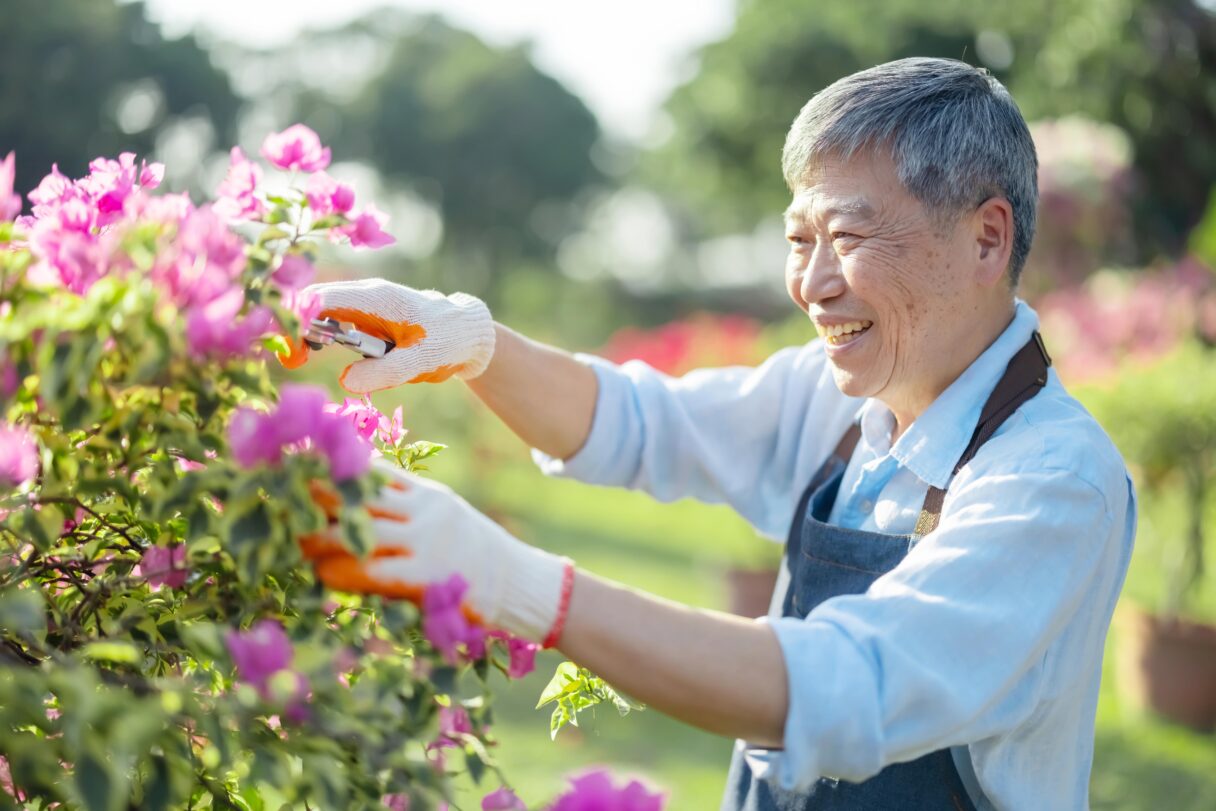
While sweaty HIIT and spin sessions will always have a place in the world of exercise, there’s a lot to be said for low-impact activity which you might not even realise is exercise at all. Buettner and his team observed that ‘people were nudged into moving about every 20 minutes’, as they weren’t afforded machines to do everything for them and instead kneaded their own bread, used hand-operated tools and got hands-on with the gardening.
“Rather than going to the gym, people in Blue Zones spend plenty of time outside in the sunshine getting active, whether that's gardening, walking, hiking or simply relaxing,” explains Kenny. “For example, in the Blue Zone of Ikaria, the Greeks effortlessly 'exercise' by gardening, walking to their friends' homes or simply by doing everyday errands in their walkable communities.
“Elsewhere in Okinawa, they have what we call 'floor culture', so they eat their meals and/or rest in the squat position. Getting up and down off the floor several times a day is really important for longevity as it builds lower body strength and improves balance, both of which help protect against falls and later life frailty.”
Read more: The best new makeup and skincare to buy now

